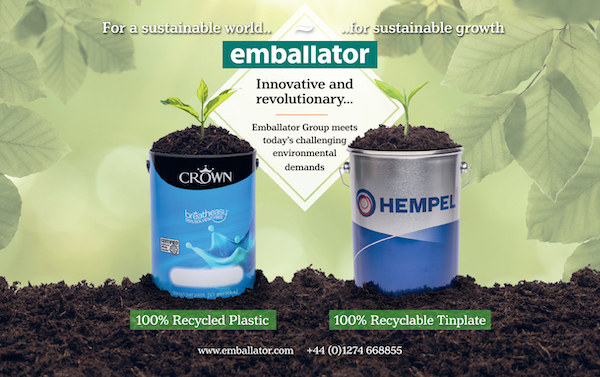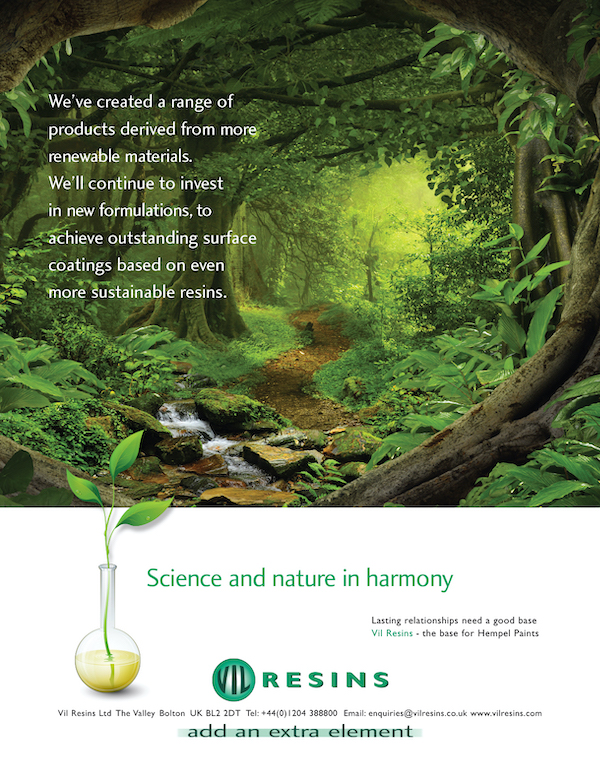Building a business takes time. When Dob Meadows Print Shop opened in Darwen, Lancashire, in 1777, little did its owners know the course they were setting for the future. After being granted the Royal Warrant in 1949, the firm took on the name of Crown Paints in 1966.
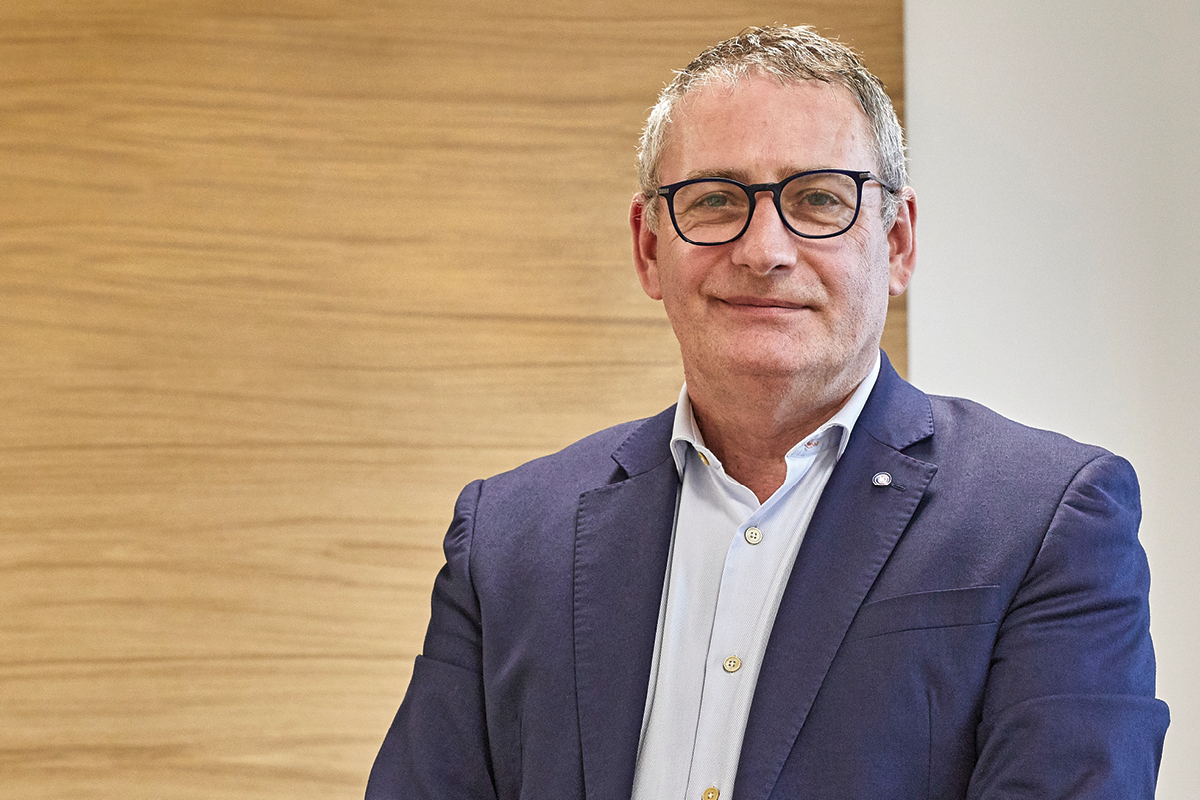
Meanwhile, across the Channel, Renaulac opened its doors in 1827, and joined forces with German company J.W. Ostendorf in 2012.
Crown Paints and J.W. Ostendorf were acquired by Hempel Group in 2011 and 2018 respectively. A business with global influence in the coatings industry, Hempel was founded in Denmark in 1915, and now has operations in more than 80 countries.
It is owned by the Hempel Foundation, which is dedicated to making a positive difference around the globe through social, humanitarian and scientific programs. The foundation is the sole owner of the Group, an ownership structure that is unique in the coatings industry.
As a veteran executive, Joe Devitt well understands the shifting nature of the coatings business. In his time, he has seen it change irrevocably as the market moved with novel ideas, new manufacturers and greater regulation. He has also seen many players consolidate, sometimes out of necessity, but often for business opportunities that arise.
He reminisces about his long career with the company. “I’ve worked with Crown Paints for more than 30 years, so I’ve been around for quite some time!”
“Crown Paints was sold by Akzo Nobel in 2008, and spent three years in private equity before joining the Hempel family in 2011,” he continues. “Most recently in 2018, we welcomed a new member – J.W. Ostendorf.”
This has enabled the firm to form a strong platform for developing a European business in decorative paint. The year 2018 was also the same one that Joe was made Group Vice President of Hempel Decorative Europe, a new organisation that combines Crown Paints, J.W. Ostendorf and Renaulac, and he is more than excited about its prospects.
“What drives me is the idea of maximising the expertise that we have in brands and private labels across Europe today, and expanding the Hempel Decorative Europe business to make it an even bigger part of the Hempel family. Even after 30 years, I’m still driven to find growth. Fundamentally, we are focused on expanding organically with our major clients across the continent with a mission to attain high levels of customer service.”
“What drives me is the idea of maximising the expertise that we have in brands and private labels across Europe today.”
In addition, the Hempel Group has an ambition to double its revenues in five years and Joe believes that there will be further opportunities to expand the Hempel Decorative Europe family across the region and beyond.
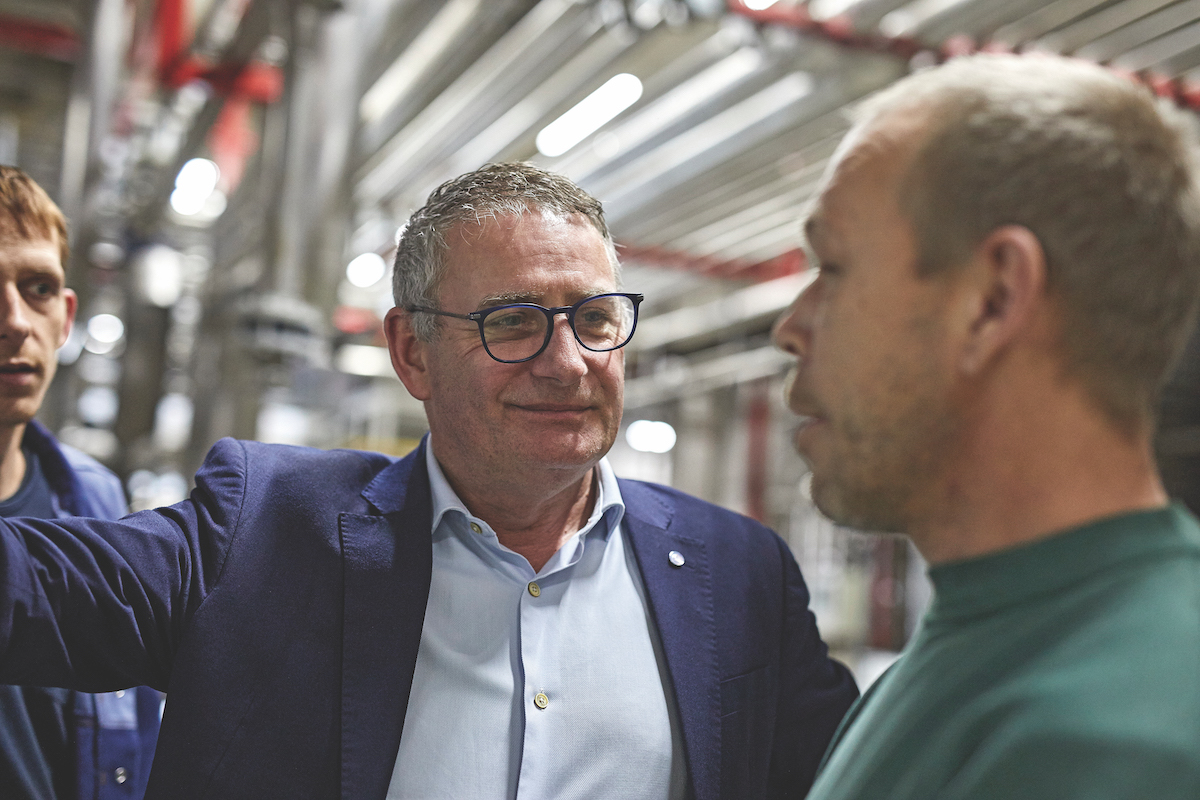
The firm has a focus on what it calls the Best of Both concept, which describes how it brings together the skill sets of the companies under it to create a strong platform for growth. The best example of this in practice can be seen in the formation of the management team, which is made up of experienced members from both Crown Paints, J.W. Ostendorf and Renaulac.
Joe and his team are excited by the idea of Hempel and its subsidiaries doubling in size. He is also working on transforming the new Hempel Decorative Europe into a one-stop shop concept offering tailored solutions, either in brands or private labels.
“J.W. Ostendorf has best-in-class manufacturing in Germany, and has already implemented initiatives such as the one-stop shop concept and a category management approach,” he says. “The latter allows us to offer a range of services, from shelf planning and range productivity analysis down to the complete management of the paint category. This, together with our own merchandising field force, allows us to offer a real differentiated service.”
Joe keeps a keen eye on his broad customer base and its diverse requirements. Hempel Decorative Europe deals with all types – consumers who buy relatively small quantities for their homes, tradesmen who may be sole operators and major retail outlets that service millions every year.
“The big focus is driving strong partnerships with customers. We have a fantastic branded portfolio from Crown Paints and Renaulac, and we have expertise in private label, mainly from the core set-up in Germany,” he says.
“It’s all about forming the right relationships in our operations. The supply chain is a critical part of doing business across Europe. In order to meet the requirements of both customers and ever-increasing legislation, we rely on intelligent support from our main suppliers.
“Given that we have brought together Crown Paints, J.W. Ostendorf and Renaulac, our challenges are now even bigger because of the scale of our operation – it has doubled in size in 12 months! The commitment and support of our suppliers are probably more important now than they have been in the past 10 years. They are critical to our performance. It’s not just about complying with legislation and meeting the specifications of our customers. We also want our collaborations with suppliers to result in real innovation.”
Innovation is key
Joe takes a broad-brush approach to generating an innovative mindset in Hempel Decorative Europe, and suggests that the company shouldn’t limit its thinking to just what is in the pack. New formulations and raw materials can produce innovative products, but he prefers to take it further.
“We have to consider innovation outside the tin,” he adds. “For example, I think that through digitalisation, our interaction with customers can become more inventive than it has been in recent years.
“I don’t limit the subject of innovation to just formulations and trends in the paints either. We want to differentiate, to provide full service and to be creative on behalf of our customers. We are fortunate that innovation is a major part of Hempel Group’s strategy and over the next three to five years, we will focus on solutions that are even more product- and customer-driven.”
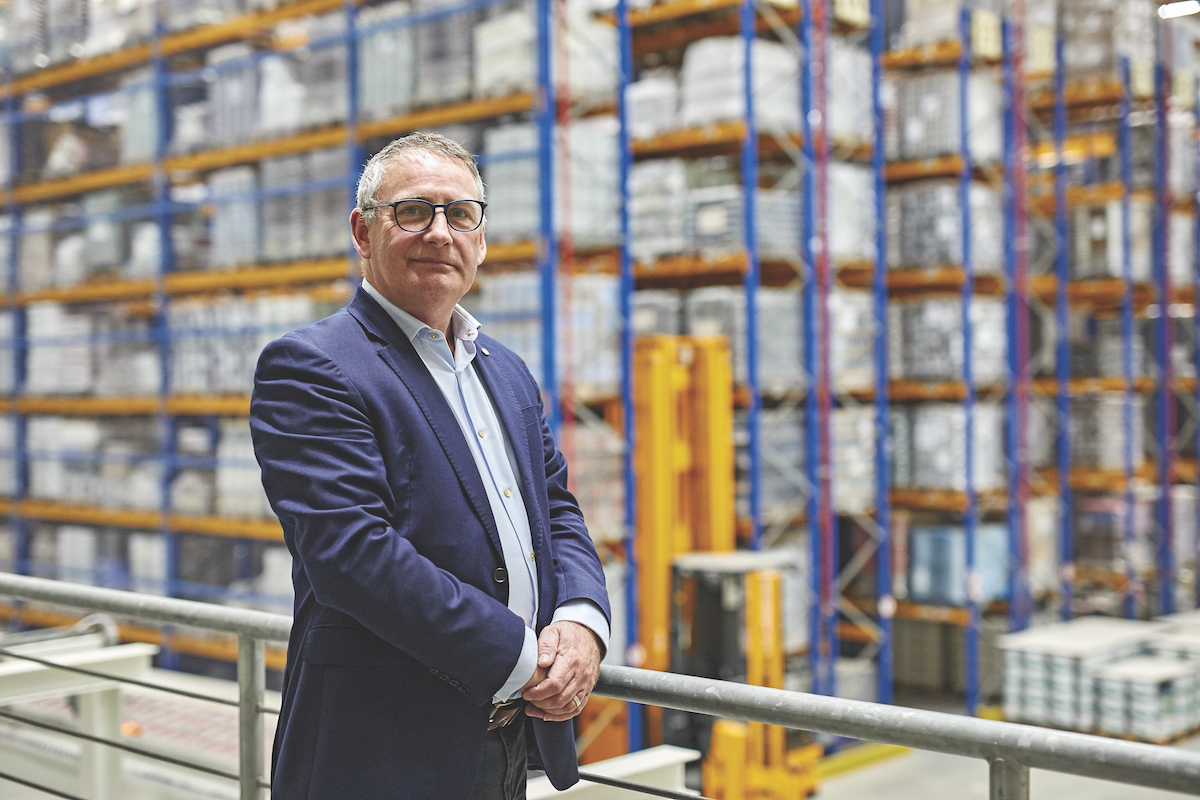
A sustainable path
Environmental awareness has generated an urgency for more eco-friendly raw materials and final products that do less damage to both environment and people. While Hempel Group’s broader business also includes the environmentally challenging marine and protective coatings divisions, the decorative division has concerns of its own, especially in regulatory affairs.
Joe concedes that sustainability is a critical subject in the industry. “It’s important to stay compliant in this fast-moving part of the business,” he says.
“There are things that make a big difference on a day-to-day basis. For example, we are working with one of our plastics suppliers to recycle post-consumer waste to produce 100% recycled packaging. This is implemented Europe-wide but in the UK, we were the first paint manufacturer to introduce it. This is where working alongside our suppliers has made a big difference and to me, is a tangible way of clearly demonstrating our sustainability credentials.
“In the UK, we have 150 locations under the banner of Crown Decorating Centres and, through that network, we have what we call a Can-Back scheme, which is mainly targeted at tradesmen. They can return their empty paint containers to us, which we then recycle in our own factory, and reuse to create any number of new materials. We are very keen to contribute to a circular economy and do our best to make sure that the containers we put into the marketplace can find a way back to us.”
The challenge outside
Joe points to internal operations as “the things you can control”. Real challenges are external, he says, and require a different approach if they are to be overcome.
“We can focus on what we have influence over – managing our brand and product portfolio, building our infrastructure and maintaining our plant machinery, making sure we are best in class in the equipment we use, and continuously investing in our people to support our future growth.
“But there are a lot of moving parts externally that are the true test. This is especially applicable to Brexit, which is unique in the level of uncertainty it has brought to the business, to consumers and to our customers,” he points out.
“That said, I believe that our collaboration with J.W. Ostendorf has created a robust European footprint that will undoubtedly help us through this transition.”

Joining the family
All this talk of growth and expansion requires a workforce that is ready to act on opportunities as they present themselves. Fortunately, says Joe, Hempel Decorative Europe is geared towards finding and developing the talent required.
“You can’t be successful without good people,” he asserts. “But the challenge is retaining people who are engaged and feel a sense of pride and worth within the organisation. The Hempel Group in particular is a strong supporter of developing talent within the business, and I’m pleased that Hempel Decorative Europe plays a major part in this.”
Hempel has devised three programs for engaging and developing the talents of employees. Those just entering the business are inducted in the Pioneer program – a way to absorb capable young people with good potential futures with the business.
People who have been with the group for a short time and have demonstrated their abilities will go into the Explorer program and participate in large business projects. At senior levels, employees who qualify for management roles such as Joe’s, or higher, would be represented by the Challenger program, an intensive scheme for leadership development.
“Hempel has put together a framework that allows us to develop our people,” says Joe. “The Pioneer, Explorer and Challenger programs draw out promising futures for those who are capable.”
“We refer to ourselves as a ‘family’, rather than a corporation.”
Doing good
Of course, at the core of the Group is the Hempel Foundation, which regularly devotes time and profits to corporate social responsibility projects, differentiating it from most other businesses in Europe. Its foundation status allows it to allocate a share of its revenue to education.
One beneficiary is the Danish Technology Institute. Another equally important initiative is a worldwide program that supports education for underprivileged children and families, with numerous volunteer projects that its employees can experience for themselves.
“Last year we were in Tanzania,” says Joe. “We have also been in Bolivia and West Timor, and this year, we are in Guatemala, giving young children a chance to focus on education. It’s a big part of what Hempel does – getting employees proud and engaged about working with a socially-committed company. This is why we refer to ourselves as a ‘family’, rather than a corporation.
“In the future, I see us as a much bigger business, developed organically by growing with customers through the one-stop shop concept and through innovation, good services, digitalisation and sustainability. But we are also keen to attract new ‘family’ members who will enjoy collaborating with, and being a part of Hempel Group and the Hempel Foundation. We speak often of the ‘family’, and we want those who join us to appreciate what it’s like to be a member and to respect the values of Hempel.
“I see us as a much bigger business, developed organically by growing with customers through the one-stop shop concept.”
“In five years’ time, I expect us to be significantly bigger than we are today with a strong record of organic growth and additions to the family.”
Proudly supported by:


